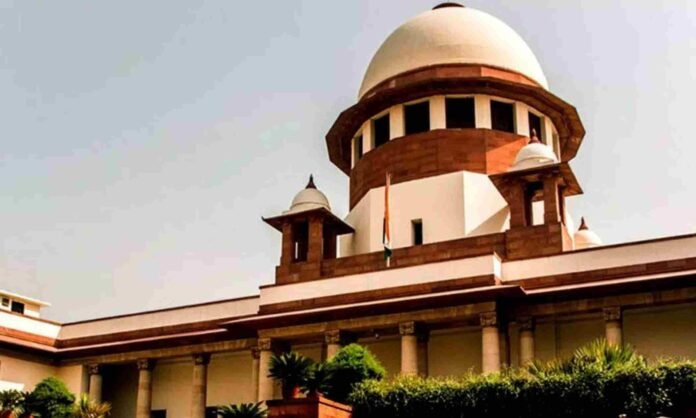The Supreme Court held that it is not mandatory for a non-resident assessee to have a permanent establishment in India to carry on business or have any business connection in India.
The division bench of Justice Manoj Misra And Justice Joymalya Bagchi observed that the Continuous correspondences between the appellant and ONGC with regard to supply of manpower for oil drilling purposes and its unsuccessful bid in 1996 demonstrates various acts aimed at carrying on business in India which unfortunately did not fructify in procuring a contract.
Background
Appellant is a non-resident company incorporated in France and is engaged in oil drilling activities. In 1983, the appellant was awarded a 10-year contract for drilling operations in offshore Mumbai from 1983 till 1993. Thereafter, the appellant was awarded another drilling contract in October, 1998, which came to be formalised in January, 1999.
In the interregnum i.e., during the relevant assessment years, though no drilling contract was awarded, the appellant carried on business correspondences with ONGC from its office at Dubai and headquarters at France and had also submitted a bid for oil exploration in 1996.
For the relevant assessment years, the appellant filed its return showing ‘NIL’ income. The only income credited was under the head ‘Income from Business’ on account of interest received on income tax refunds amounting to Rs. 1,69,57,395/- for Assessment Year 1996-1997, Rs. 5,49,628/- for Assessment Year 1997-1998 and Rs. 11,29,957/- for Assessment Year 1999-2000.
Against this, business expenditures aggregating to Rs. 2,50,000/-, Rs. 5,55,152/- and Rs. 11,29,957/-, respectively, were claimed as deductions and appellant also claimed set-off against unabsorbed depreciation on furniture and fixtures brought forward from earlier years.
The Assessing Officer4 disallowed deduction of business expenditure as well as carry forward of unabsorbed depreciation on the ground that the appellant was not carrying on any business during the relevant assessment years. The findings of the AO were upheld by CIT (Appeals).
ITAT, however, reversed the findings of the CIT (Appeals), holding a temporary lull in business for whatever reason cannot be termed as cessation of business.
The High Court while agreeing with the proposition that mere lull in business does not mean the assessee had ceased to do business in India, reversed the finding of ITAT.
Observation of Supreme Court
The bench observed that Section 37(1) of the Income Tax Act, inter alia, provides any expenditure (not being an expenditure in the nature described in Section 30 to 36 or in the nature of capital expenditure or personal expenses of the assessee) which is undertaken wholly and exclusively for the purpose of business and profession shall be allowed to be deducted in computing income chargeable under the head ‘Profits and Gains from Business and Profession’ and consequently, may be set off as loss against income under any other head subject to the conditions provided in Section 71 of the Act.
The bench further observed that Section 32(2) provides unabsorbed depreciation allowance of a previous year may be carried forward and set off against income of the following assessment years in the manner and subject to the conditions provided therein.
The bench noted that the appellant, a non-resident company had been awarded 10 years’ drilling contract by ONGC in 1983. The contract continued till 1993. Thereafter, the appellant failed to procure another contract till October, 1998. But ample materials have been placed on record to show during the interregnum, the appellant had continuous business correspondences with ONGC with regard to hiring of manpower services in respect of expert key personnel for drilling in deep waters and had even unsuccessfully submitted a bid in 1996.
The court stated that the Tribunal rightly noted a business going through a lean period of transition which could be revived if proper circumstances arose, must be termed as lull in business and not a complete cessation of the business.
The court held that the High Court erred in holding that the appellant was not carrying on business as it had no subsisting contract with ONGC during the relevant period.
“A combined reading of the charging provisions under Section 4 and Section 5(2) of the Act read with Section 9(1)(i) makes it amply clear that a non-resident person shall be liable to pay tax on income which is deemed to accrue or arise in India. Under Section 9(1)(i), income accruing or arising, directly or indirectly, through or from any business connection in India is deemed to accrue or arise in India and is accordingly chargeable to tax as business income under Section 28 of the Act. None of these provisions make it mandatory for a non-resident assessee to have a permanent establishment in India to carry on business or have any business connection in India” the court stated.
Conclusion
The bench held that in an era of globalisation whose life blood is trans-national trade and commerce, the High Court’s restrictive interpretation that a non-resident company making business communications with an Indian entity from its foreign office cannot be construed to be carrying on business in India is wholly anachronistic with India’s commitment to Sustainable Development Goal relating to ‘ease of doing business’ across national borders.
The bench allowed the appeals and set aside the judgment and order of the High Court and revived the orders passed by the ITAT.
Case Details
Case Title: Pride Foramer S.A. v/s Commissioner of Income Tax & Anr.
Case No. Civil Appeal Nos. 4395-4397/2010
Read More: CBIC Extends Time Limit For Furnishing GSTR-3B for September Month Till 25th October 2025

